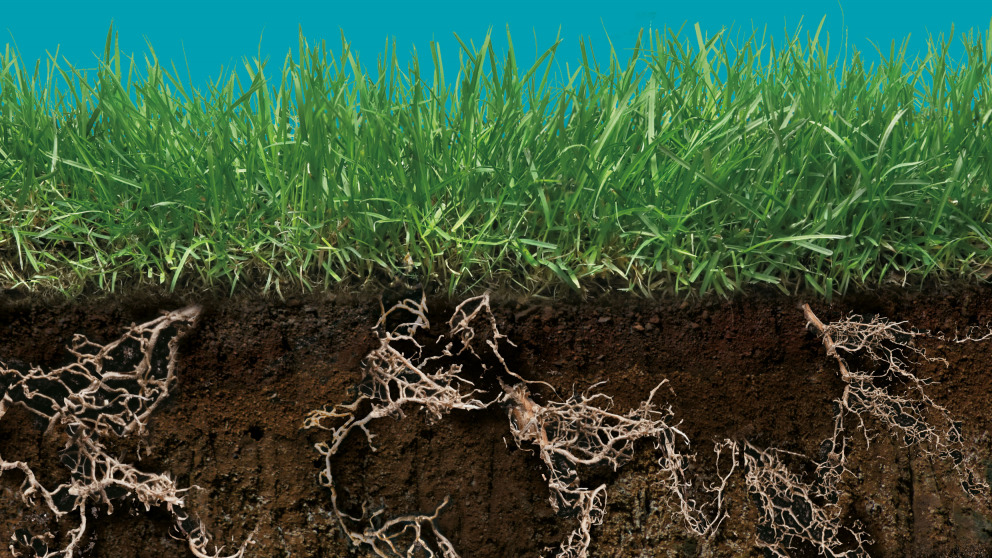Headline:
“Limit land consumption worldwide!” The Soil Atlas 2015 has been released

The first edition of our Soil Atlas 2015 with facts and figures on the significance and the state of land, soil and agriculture in Germany, Europe and the rest of the world has been released by the Institute for Advanced Sustainability Studies (IASS) in Potsdam, the Heinrich Böll Stiftung, Friends of the Earth Germany (BUND), and Le Monde Diplomatique.
The Soil Atlas 2015 makes the increasing scarcity of land and soil tangible. For example, in Germany, land is being consumed at a rate of more than 70 hectares – the equivalent of 100 football pitches – every day. One quarter of all German agricultural land – around three million hectares – is affected by wind and soil erosion, while land take continues apace. At the same time, Germany imports agricultural products and other consumer goods, which require the use of 80 million hectares annually or double the total area of Germany. Things are not much better in the European Union as a whole. To satisfy the requirements of EU consumers, an area of around 640 million hectares – one and a half times the combined area of the twenty-eight Member States – is required every year. About 60 per cent of the land used to meet European demand is located outside the EU. This makes Europe the continent that is most dependent on land beyond its borders to sustain its lifestyle, its agricultural industry and its hunger for energy.
Professor Klaus Töpfer, Executive Director of the sustainability institute IASS and co-editor of the Soil Atlas, claimed that Germany’s intensive use of land beyond its borders was also having adverse effects on global ecosystems.Töpfer cited the release of CO2 from soils due to non-sustainable management as just one example of the complex consequences of our use of soils. “The destruction of soils is a major problem in Germany,” warned Töpfer, “that’s why we must use the new UN Sustainable Development Goals to improve soil protection in Germany. 2015 presents us with an opportunity to do so.”
Barbara Unmüßig, President of the Heinrich Böll Stiftung, is critical of the growing demand for land: “The EU is the world’s largest importer of land. Most of that land contributes to our intensive meat industry, for which we import huge quantities of feed from countries in the Global South. As a result, small farmers and medium-sized operations are increasingly losing their land and thus the basis for their livelihoods and food security,” said Unmüßig. “Each EU citizen uses 1.3 hectares of land annually – that’s equivalent to two football pitches and six times the amount of land used by a citizen of Bangladesh. Given the critical food situation in many countries, this flies in the face of justice and is also ecologically untenable. In this context, European consumers are called upon to adopt more responsible consumption habits, but there’s a particular onus on politicians to act: the EU and Germany must rethink their agriculture policies and gradually put an end to industrial animal production,” stressed Unmüßig.
“In the International Year of Soils 2015, the German Government must do everything in its power to finally ensure the legal regulation of soil protection,” said BUND Chair Hubert Weiger. “More and more fertile land in Europe is being compacted, degraded or destroyed by heavy machinery. The continuing sealing, erosion, and loss of humus must be halted,” demanded Weiger.
The one-sided agricultural policies of the EU and Germany have had detrimental effects. They have mainly promoted the growth of large-scale agricultural operations and the concentration of land ownership in the hands of few, especially in Eastern Germany and Eastern Europe. The rise in the price of farmland is a further consequence of this land concentration. In the last ten years, land prices in Germany have doubled, while increasing by 1,800 per cent in Romania. “Small agricultural businesses and small farmers are often forced to give up their livelihoods, as they are no longer able to compete,” said Weiger.
The editors of the Soil Atlas 2015 would like to demonstrate in the UN Year of Soils, why the protection of soil is important to us all, and how we can achieve more effective soil protection. A more just and sustainable land and soil policy is indeed a worthwhile goal. Consumers can make a contribution by considering soil protection in their day-to-day purchases.
The Soil Atlas 2015 can be downloaded here.
08.01.2015
